In Their Own Words: Voices of Hunger
How does it feel to be hungry?Meet some of the 1 in 3 Marylanders who know exactly how it feels to face hunger and read their incredible stories of resilience.
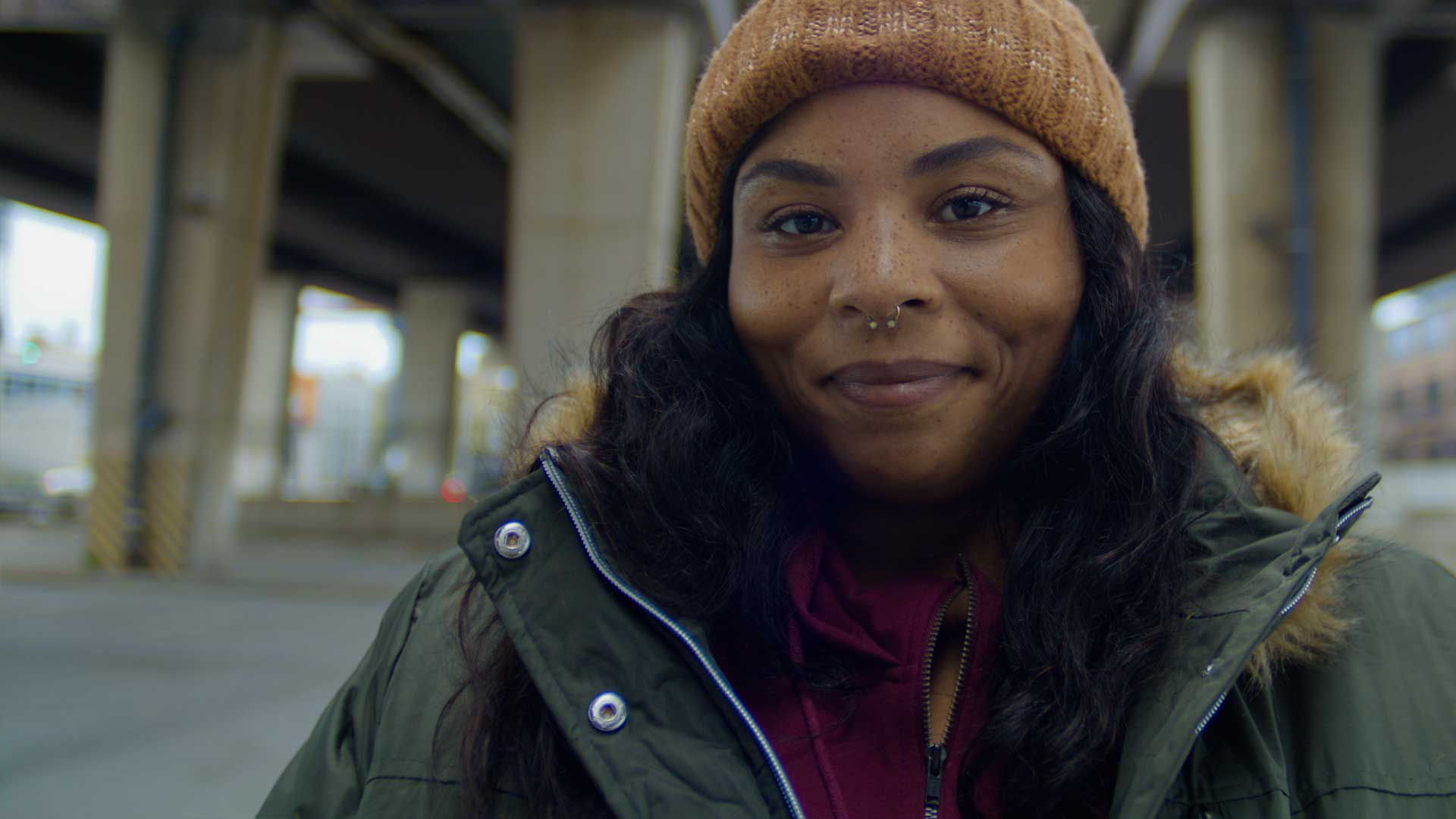
Meet Kimberly Evans
Hi, my name is Kimberly Evans. After being abandoned and shipped off to North Carolina on a Greyhound bus by my mother at age 14, I learned resiliency really quick. When you’re that young, you can’t apply for food stamps or other things, and the “system” kind of feels like the enemy. So I had to figure out how to eat, how to live, and how to get things done. I remember stealing candy bars from stores, and that was all I had to eat some days.
Unfortunately, I continued down that path, and was locked up at age 17. When I got out a year later, I chose to move back to Maryland. I lived on Lake Brook Circle, in the projects not too far from the Maryland Food Bank. I didn’t really have a good support system, but things needed to change.
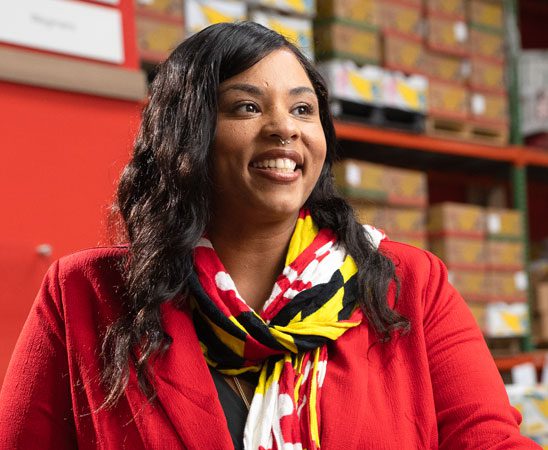
I was 19, old enough to apply for help. I did, and the support was life-changing.
I found people that did not make me feel like I was a problem and started to realize that “the system” is what you make it to be. Then, I knew that I wanted to help others feel that way, and started helping my neighbors apply for benefits.
And now, being a part of the Speakers Bureau, I have a new kind of support system-one that has helped focus my passions allowing me to be a more effective advocate for people like me who need help.
I am becoming the person that I once needed and can’t thank you enough for the opportunity!
Donate Now
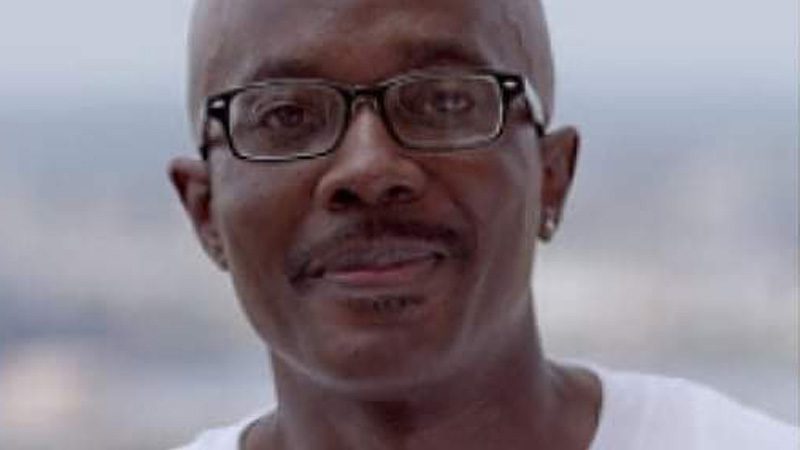
Meet Advocate Marlo Hargrove
“I am those that I serve… I’ve been in prison. I’ve been homeless. My heart is overwhelmed with joy because I know honestly how it feels to be on that outside looking in and now I’m in the inside looking out. Now I feel compelled to go out and help others to overcome their struggles.”
Meet Nakia Coleman
I’ve known the struggles of not having enough to eat from an early age.
I grew up in a single-parent household with just my mom. It was the 1970s, and my experiences with food were either standing in lines where we’d get cans that just said ‘pork’ on them, or my mom would have my brother and I do wish sandwiches—where we’d put mayonnaise between two slices of bread and ‘make a wish.’
Then during the summers in high school, my friends and I would go to the different food programs in the area, trying to find the ‘good’ food.
At the time, we thought we were playing games. It wasn’t until later that I realized what was happening in my life.
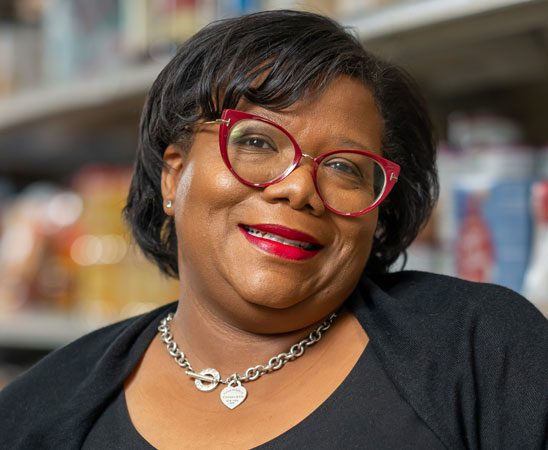
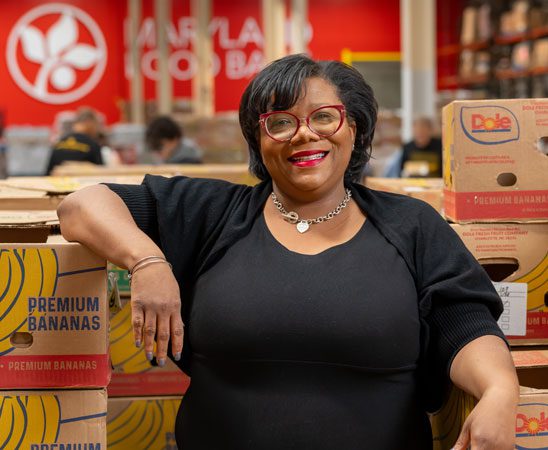
I thought I was on a great trajectory—college educated and ready to go to law school.
Then life happened.
Now I was going to be the single mom, with my daughter arriving prematurely. I quickly learned how important nutrition was going to be for her development. But even with the help of SNAP, I couldn’t afford formula, so breastfeeding became a key part of getting her the nutrition she needed.
And on top of that, I didn’t have a car. I had to advocate for myself—asking friends to help me get back and forth to food banks and farmers markets.
And for a long time, I wore food insecurity as a badge on my chest—I felt like that’s what made me, because I knew how to do without.
But now, looking back, the food bank definitely played a role in my ability to survive, and I benefitted greatly.
Today, I am a member of the Maryland Food Bank’s Speakers Bureau and am excited to be able to use my voice and experience to advocate for others who are facing the same challenges I did.
Working as a regional property manager in the affordable housing market, I deal with a lot of senior and lower income properties and see firsthand how people with limited resources struggle to take care of their own basic needs.
Getting connected to resources made me feel empowered and inspired, and as a member of the Speakers Bureau, I get be the one to help other Marylanders feel this way.
All my life, I’ve really been the benefactor of someone else wanting to do good. So for me, I truly believe it’s like the rent you pay to be in this world…
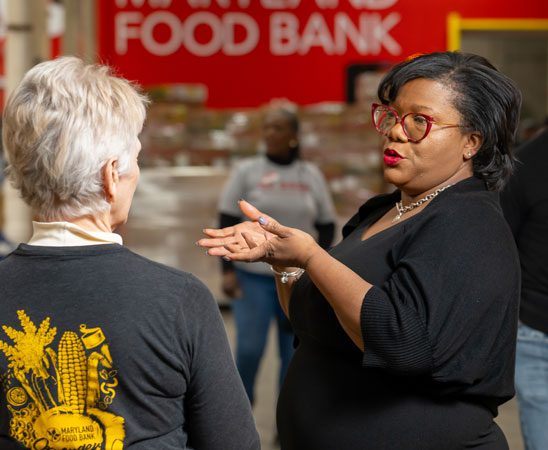
More MFB Voices
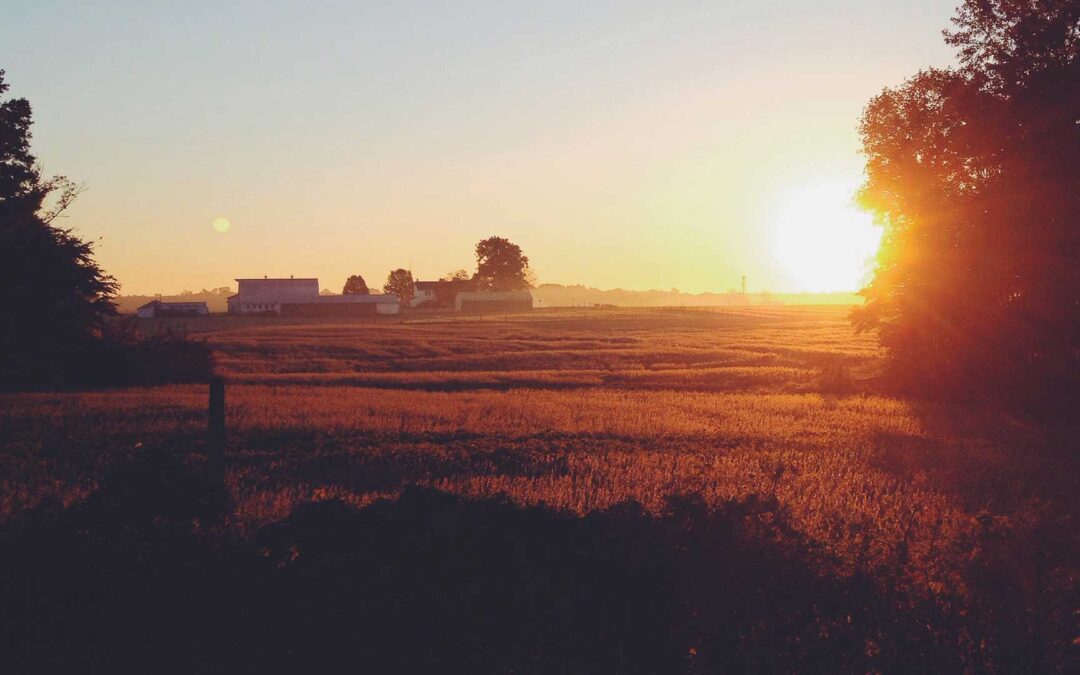
What’s Really Behind Hunger? How A Vehicle Breakdown Uprooted the Murphy Family
When Marylanders like Jeni Murphy share their story and tell us what’s really behind the hunger they are experiencing, it illustrates the ripple-effects of a lost resource. These stories give us a glimpse of understanding about deeply a root cause of hunger can affect a family’s day-to-day life.
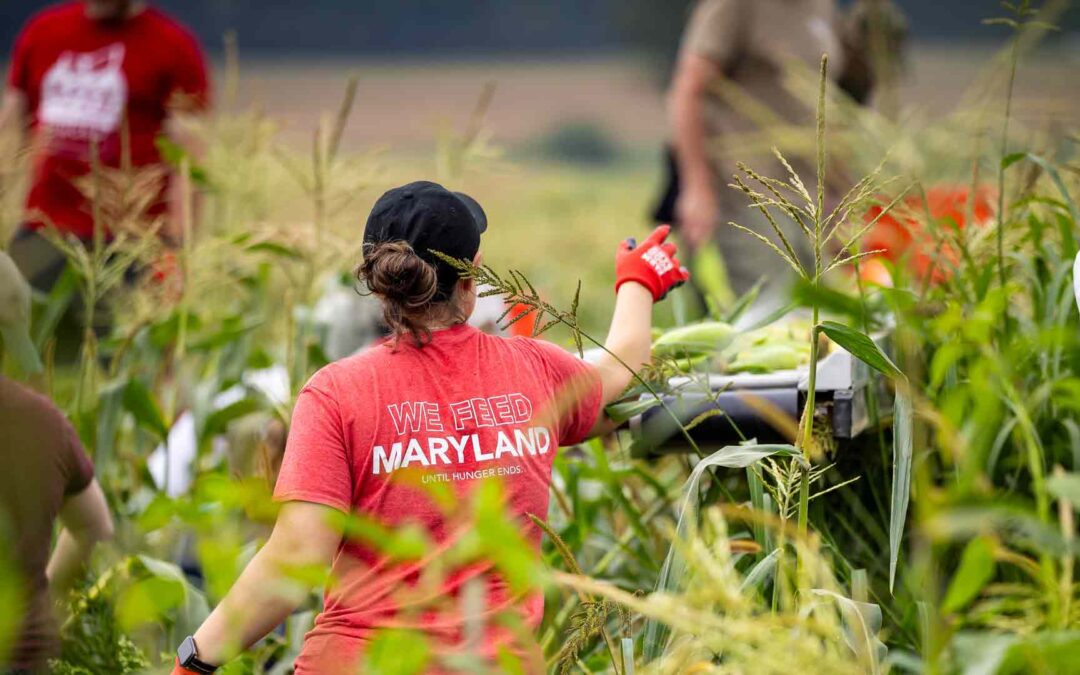
Hunger ACTion Month 2024: Advocating, Collaborating, and Truth-telling
Check out the Maryland Food Bank’s list of the Top 3 Ways to Act during Hunger ACTion Month: Advocating, Collaborating, and Truth-telling. Find out how YOU can ACT OUT during Hunger ACTion Month 2024
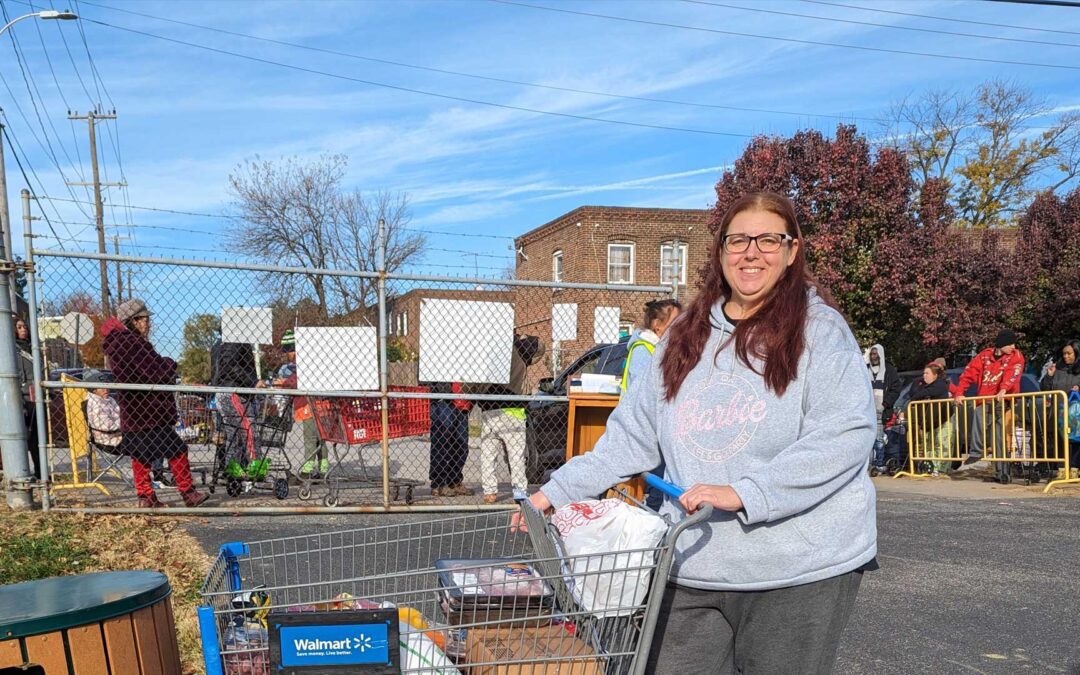
Unexpected Need and Relief at the Holidays: Meet Tina Crow
Meet Tina Crow, a neighbor who unexpected found herself and her family in need at the holidays. Thankfully, she found comfortable relief at MFB Network Partner City of Refuge in northeast Baltimore.
Get updates on our progress in the fight against hunger
Want to see how your involvement directly impacts the well-being of your neighbors in need? Get the latest news sent to your inbox.





